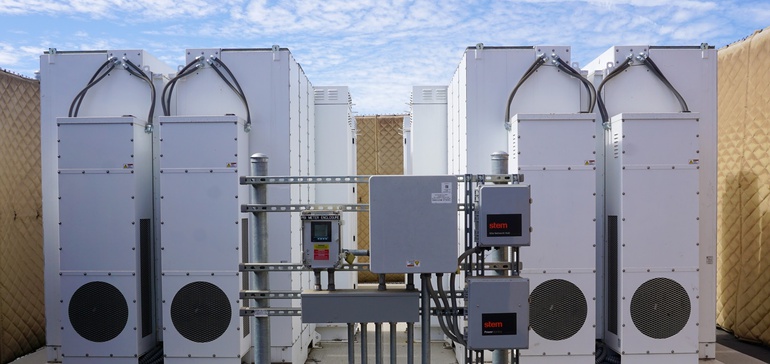
Dive Brief:
- As Michigan weighs the best policy to comply with a federal order encouraging more electricity storage development, utilities urged the Michigan Public Service Commission (MPSC) to not allow electric storage resources to participate in the retail and wholesale markets simultaneously.
- In comments filed with the MPSC, utilities DTE Energy and Consumers Energy Company each said that dual participation would cause confusion in the market and could allow some participants to avoid higher rates and shift costs onto customers. MPSC had sought comments on how the Federal Energy Regulatory Commission's Order 841, an effort to lower barriers to electric storage resources (ESR) in wholesale power markets, should be implemented in the region.
- In separate comments, a coalition of clean electricity groups said a dual participation model was the best approach to maximize the benefits of storage resources and accelerate the grid's transition to renewable energy. Shutting off the ability to operate in both markets, the groups wrote, "would constrain the economic opportunities for these ESRs, potentially inhibiting their ability to stack revenues from providing multiple benefits."
Dive Insight:
Order 841 was designed to boost the storage industry by ensuring that the technology would be compensated fairly for its unique role in the market. The order was subject to a federal lawsuit from utility and state regulatory groups, who said it would force regulators and utilities to adopt unfair rules and could raise costs, but was upheld by a federal appeals court last summer. In September, FERC issued Order 2222 that would similarly lower barriers to distributed energy resources.
Attention has turned to regional transmission organizations (RTOs) and independent system operators (ISOs) as they reset their market rules. MPSC is considering adjusting retail tariffs to allow ESRs to participate in retail and wholesale markets. A key question is whether the rules would allow projects to operate in both simultaneously.
Advocates say this would make projects more financially viable — attracting more investors — and cement storage as a key electricity provider. However, there are concerns about how such a program would work. New York ISO was the first operator to allow such a program and remains the only entity overseeing one, and the lack of guidance means implementation could be complex.
In a comment, MPSC staff recommended that dual participation be barred for "at least five years" as the marketplace settled. Such a move, staff wrote, "would not preclude participation in the wholesale market," but would simply force an ESR to choose whether to operate on the retail or wholesale market. The staff also recommended a "stay-out" provision, preventing an ESR from switching between the markets during the prohibition period.
That is in line with comments from utilities, who said it was still too early to make such a change. In its comment, Consumers Energy wrote that a "flawed" dual participation system posed risks to storage, since it would create uncertainty about ESRs' capabilities and role in the market. Consumers also wrote that there was the risk that ESRs could charge at wholesale, then deliver services and be paid at retail prices, "the costs of which would be borne twice by non-participating customers." In a statement, Consumers Energy noted that it was operating or installing large-scale batteries at four locations in the state, but did not elaborate on its written comments.
MPSC staff noted that without alternative proposals, there could be barriers to ESRs entering the market, such as the high cost of obtaining additional meters to delineate between retail and wholesale transactions. Among the alternatives also under consideration would be designing more flexible retail tariffs, allowing regulators more control to reward the full value of storage.
The clean energy groups — Michigan Energy Innovation Business Council, Advanced Energy Economy and Advanced Energy Management Alliance — wrote in their comment that utility tariffs providing retail value and passing through wholesale value through avoided wholesale costs or aggregated market revenues could help avoid some of the up-front concerns with dual participation. Ultimately, they said, some option is needed to boost storage capacity in the state quickly.
"We believe that providing a choice of dual participation, participation in wholesale markets, or participation in retail tariffs that pass-through wholesale values, will reflect the diversity in scale and business models of Michigan's growing market for energy storage resources," they wrote.
"allow" - Google News
May 10, 2021 at 09:07PM
https://ift.tt/3vMEthE
DTE, Consumers Energy urge Michigan to not allow dual participation for storage projects - Utility Dive
"allow" - Google News
https://ift.tt/2KTEV8j
https://ift.tt/2Wp5bNh
Bagikan Berita Ini















0 Response to "DTE, Consumers Energy urge Michigan to not allow dual participation for storage projects - Utility Dive"
Post a Comment